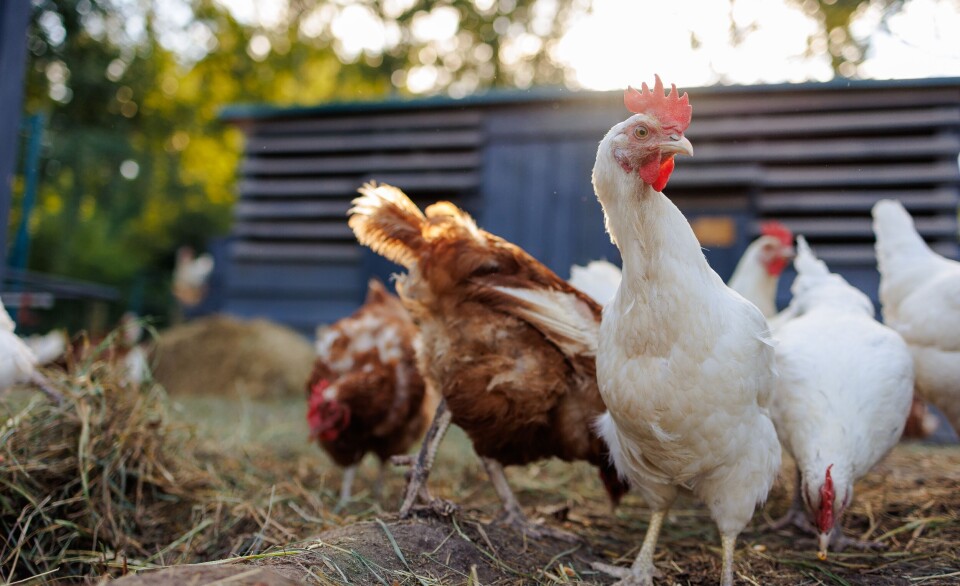-
When and why do we say avoir des tablettes de chocolat?
A chocolate-themed saying to describe someone who has a six-pack
-
La fête des grand-mères: missing the feminine 'e'
We are taught that all adjectives have to agree with the gender of the noun in French – so why is there no 'e' at the end of grand?
-
When and why do we say c'est la sardine qui a bouché le port de Marseille?
Marseille, a ship, a very big sardine, and a stereotype
Eight French expressions around the word apple
From fainting to high-quality, pomme can be used for a variety of different meanings

There are many phrases in French that use the word apple, just as in English, but drawing connections between them would be like comparing apples to oranges.
Apples, which have always been widely available in France, are perhaps the most regularly-used fruit in French phrases.
In fact, the apple was even the symbol of a presidential candidate’s campaign.
In the run-up to the 1995 election, soon-to-be president Jacques Chirac declared himself to be a “mangeur de pommes”, an eater of apples, and the apple became inextricably associated with his campaign.
Below, we share eight French expressions around the word apple.
Tomber dans les pommes
This phrase, translated as ‘falling in the apples’, means to faint.
It is very likely that the phrase is not actually linked to apples at all.
It probably stems from the old French expression tomber dans les pâmes, which means to faint due to a strong emotion. Over time, pâmes slowly evolved into pommes.
Another possible, although unlikely, explanation traces the origins of the phrase to the theatre.
French audiences would throw pommes cuites (cooked apples) in response to a poor performance, as opposed to rotten tomatoes, which were supposedly used in England (although that is likely a myth).
If an actor was knocked out by an apple, then ‘they would have fallen in the apples’, although it seems unlikely a cooked apple would knock someone out.
Perhaps some fresh ones were thrown into the mix as well?
Haut comme trois pommes
Haut comme trois pommes, translated as high as three apples, is used to describe a small child, usually in reference to other children their age.
In France, apples were often used as a unit of measurement since they were very common, which is where the phrase is thought to have originated.
In the US, an equivalent expression would be ‘knee-high to a grasshopper’.
Pomme de la discorde
This expression is most often translated as ‘a bone of contention’/’having a bone to pick with someone’, but a literal translation is an apple of discord.
It means a topic of discussion or debate that is likely to cause arguments.
The expression comes from a story in Greek mythology.
The goddess Eris, offended at not being invited to a wedding, threw a golden apple inscribed with the message “For the most beautiful”.
Hera, Aphrodite and Athena all argued over who was the most beautiful, forcing the mortal Paris to decide and eventually leading to the Trojan War.
The expression is mostly used by saying someone threw the apple of discord: “il a jeté la pomme de la discorde”.
Read more: Understand the difference between quoique and quoi que in French
Être bonne pomme
In this expression, bonne means ripe rather than good.
Identical to the expression être bonne poire (being a ripe pear), which is more commonly used than its apple equivalent, someone who is a ripe apple is someone who is too naïve and easily taken advantage of.
In use since the 19th century, a ripe apple is therefore someone who falls for tricks like ripe apples fall from trees.
Pomme de terre
This is the name given to potatoes in French. They are also called patates, although this tends to be used more regionally or colloquially.
It is not entirely clear why potatoes are called ‘apple of the earth’ in French, although it is also the same in Dutch with “aardappel”.
The first mention of pomme de terre in literature is attributed to Henri Louis Duhamel du Monceau, a botanist who used the term in 1762.
Aux pommes
When something is described as being aux pommes (literally, ‘to apples’), it means that it is of very high quality, or something that has been treated with a lot of care and attention.
Its origins are likely found in Parisian slang, although it is not exactly clear where it comes from.
Similar to être bonne pomme, it also has an equivalent that is more commonly used: aux petits oignons, or “to small onions”, which means something that is done with great care.
Two Quebecois pomme expressions
Whilst you might hear these two phrases in the French language, you would not hear them in France because they are Quebecois expressions only used in Canada.
A pomme de route, or a road apple, refers to horse droppings. When they freeze, children use a pomme de route as a hockey puck.
The second expression with Quebecois origins is chanter la pomme, translated as “singing the apple” to someone. It means to flirt with someone, trying to seduce them through flattery.
The phrase has two likely origins. The first is a religious one, referring to the apple that Eve ate in the Garden of Eden, that she was tempted into by a snake. The apple therefore seduced Eve by singing to her or enticing her.
The second possible explanation is linked to the word paume, which means palm. During a dance, two possible suitors would hold hands and pressing your palm into the other person’s was a subtle way of showing interest, therefore making their palms sing.
Related articles
‘Pour des prunes’: Our French expression of the week
Widen your vocabulary with 10 alternatives to common French phrases
























